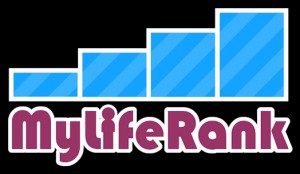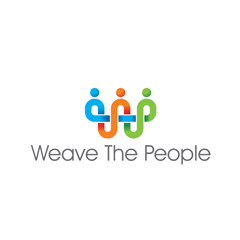MyLifeRank, termed “a social motivation network” by its team of developers, might entice you to try a new social network if you’re bored of Facebook. Explaining the inspiration for his entrepreneurial undertaking, MyLifeRank CEO George Tung, a lifelong Chicagoan, gives a nod to his foremost competitor, Facebook. He says the problem with Facebook and similar sites is that users more often have created “a culture where you say you’re social, but you’re not. You’re really anti-social.”
The team at MyLifeRank is developing a social network for a community of movers and shakers, a site that makes organizing, planning and initiating events its primary focus. They intend to bypass the noise typical to other network feeds. When asked to describe noise, Tung indifferently gave an example: “Help this guy build his farm, or something.”
So, if MyLifeRank isn’t about the usual status and application updates, it must serve a unique purpose. Let’s say you recently bought a mountain bike, but haven’t taken it out yet for lack of motivation. After a few months of daydreaming of taking it out to some glorious trail in the middle of nowhere, the bike is still hanging on the wall in the garage. You hop on MyLifeRank, where you set the goal to organize a trail ride with a few other friends; you know that it’s easier to push past your comfort zone to accomplish something when you have support. Plus, there’s a handful of people to help coordinate transportation and lunch, and keep you psyched up for the adventure. In a week’s time, you’ll be able to locate the perfect trail, get friends to join you, and finally christen those new tire treads.
Using MyLifeRank will make it possible to search for events and locations and to coordinate group activities, or to build a network of users sharing a common goal. But there’s another layer to the MyLifeRank network, what Tung calls a “sophisticated gaming system,” built to encourage a sense of competition between users. When you check off your mountain bike excursion from your goal list, your friends can rate your achievement between one and ten stars. For every star given, you get a point. As you rise in points, you place higher rank. It’s a hierarchy based on the critical eye of the crowd. Not that MyLifeRank can’t be used to track more personal goals, like weight loss or reading a book, but the gaming side of MyLifeRank was developed on the notion that competition and group support motivate us to act.
Tung jokes about the trivial quality of updating a status : “It’s like speaking into a microphone, but no one wants to hear it.” On MyLifeRank, your home feed focuses on goals and achievements, not some guy from high school you barely talked to before asking you for fake farm help, or your sensitive friend’s obsessive posting of song lyrics and music videos. It’s about getting stuff done. It’s about how well and how often you follow through on what you set out to do. It’s also for getting and giving inspiration through sharing achievements. Tung, along with MyLifeRank programmer, Milos Golubovic, and digital marketer, Dylan Rebillot, want to help people get things done, on our own or together.
An upcoming Beta release of MyLifeRank set for early November (which the first 500 to 1,000 signers-up on the website can try for free) will reveal for us the new network’s first ranks of users as the developers work out a few bugs and further improve the system. It is difficult to imagine a community of doers rising up from the cracks they fell through on Facebook and Twitter, since the popularity of social networking is often cited as either a result of, or reason for, our inclination to be lazy, to avoid social contact while wanting also to connect with others–without getting up off the couch.
MyLifeRank is based on experiencing and improving the real world. Not the Facebook world, but the one outside our door. For some people, the real world still calls. The others, Tung imagines, will stick to Facebook.










